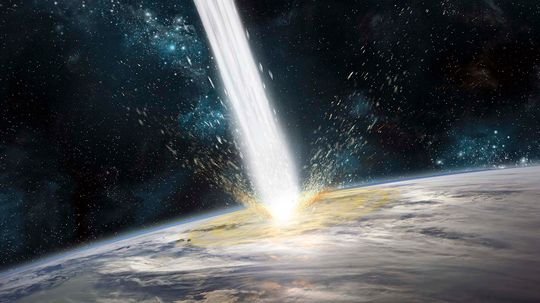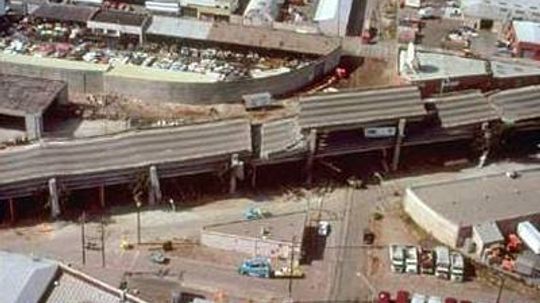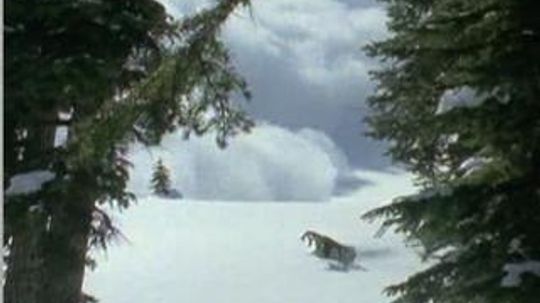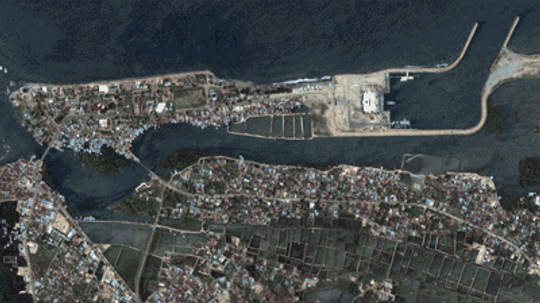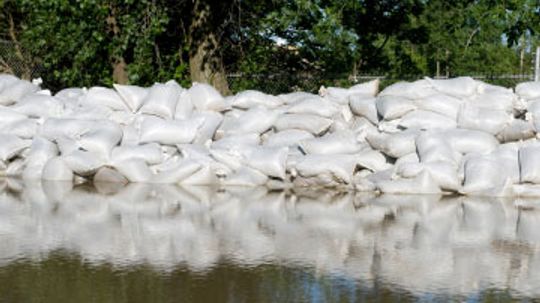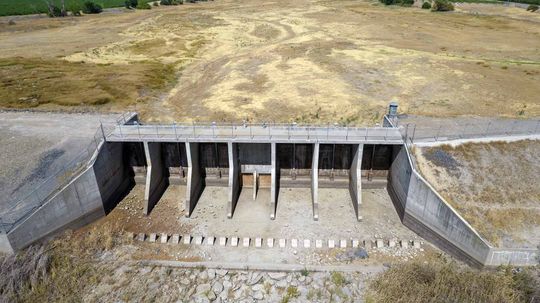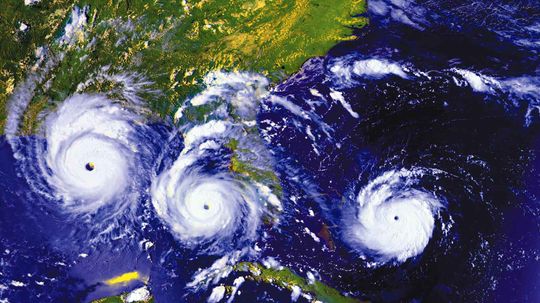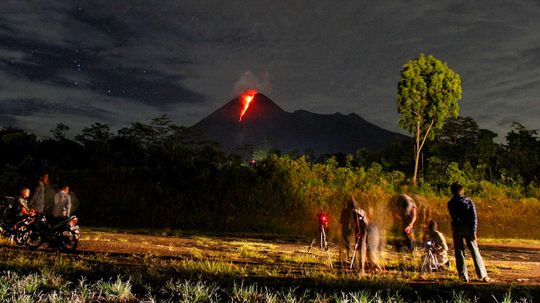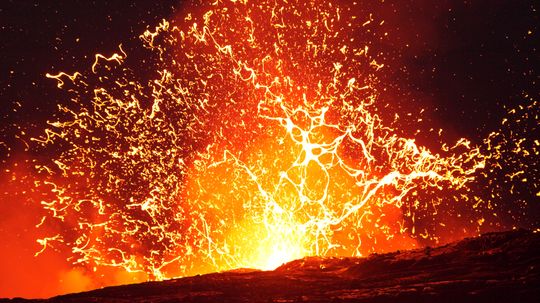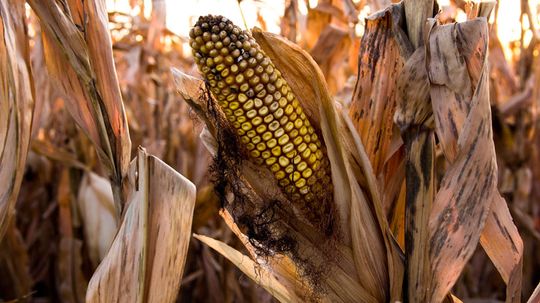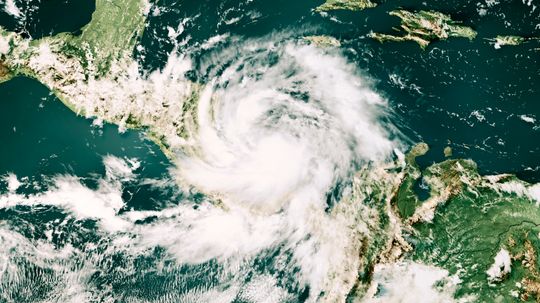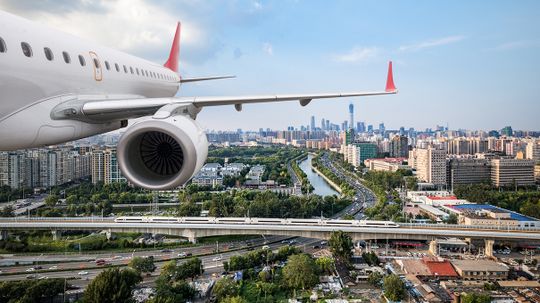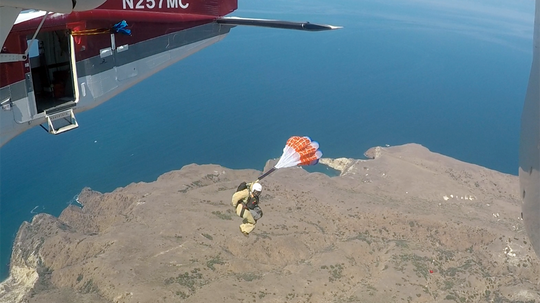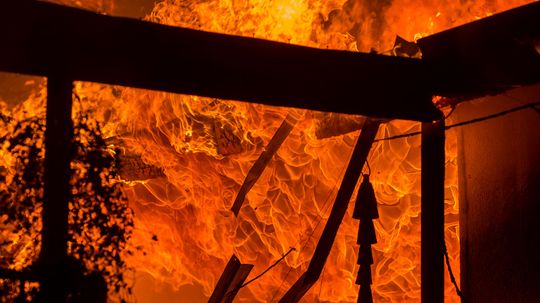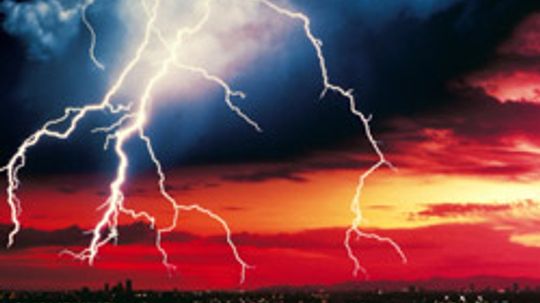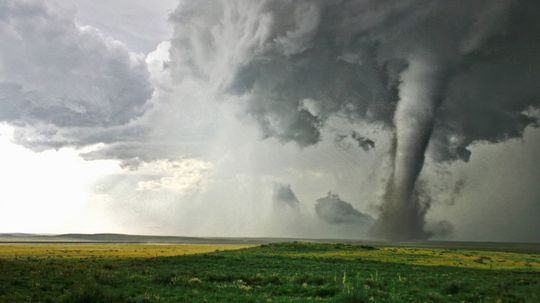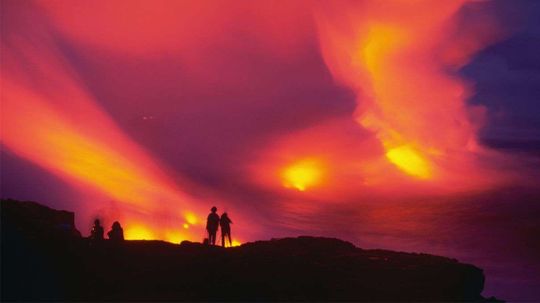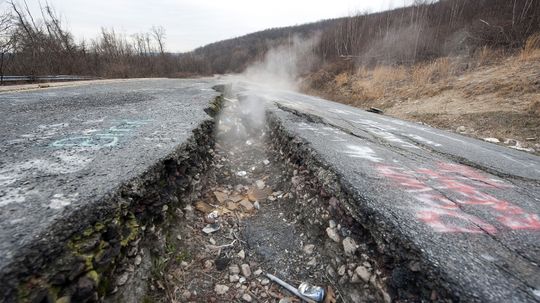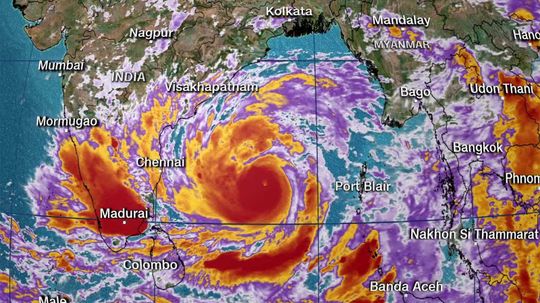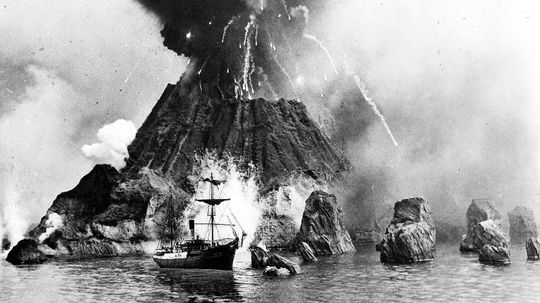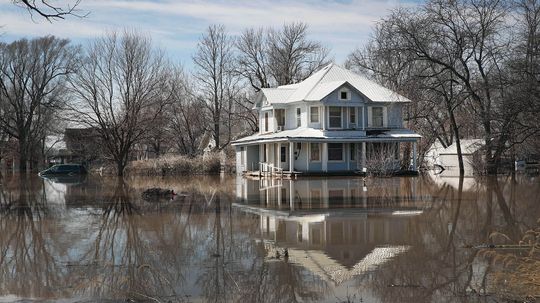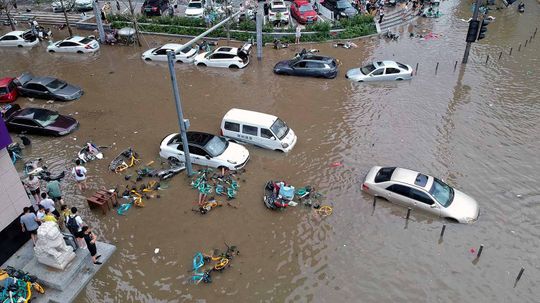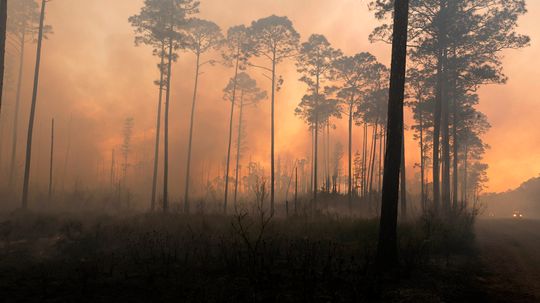Natural Disasters
Unpredictable forces of nature like tornadoes and hurricanes can have a devastating impact on humans and our environment. Learn how natural disasters work and how science aims to better predict them.
Learn More / Page 3
There are obvious craters on Earth (and the moon) that are evidence of a long history of massive objects hitting planet Earth. But what would happen if an asteroid hit Earth today?
San Francisco has a new airport that's supposed to stand up to the rigors of an earthquake. Does that mean that planes can land while a massive quake is shaking the city?
Learn how avalanches form, how long you can stay alive while buried under an avalanche and what steps you can take to survive.
Advertisement
The wall of water that struck northern Japan on March 11 claimed more than nearly 16,000 lives. While the human and cultural extents of this natural disaster are difficult to grasp, we can explain the physical properties that led to it.
By Robert Valdes, Nathan Halabrin & Robert Lamb
Do scientists really think a massive earthquake could break California in two?
There may be a time when all that stands between your home and the rising floodwaters are some sacks full of sand. Will this defense keep you safe?
Nearly 90 percent of the Western U.S. is gripped by an "apocalyptical" drought that only continues to worsen. Even if you don't live in the area, it affects you - and what you do affects it.
Advertisement
How does a hurricane become a Category 5 and what's it like to live through it? Those who have say you don't want to know.
By Dave Roos
New research digs into historic volcano fatalities to explore how, where and whom a volcano is most likely to kill.
The question about supervolcanoes, it turns out, isn't whether one could destroy all life on Earth. It's when will it do it again. Wait, what?
What happens when the rains cease and water levels dry up precipitously? Everything from abundant grasses to apex predators suffers the consequences.
By Robert Lamb
Advertisement
Learn about Hurricane Julia's origins, its impact, and its place in the history of tropical storms and hurricanes.
By HowStuffWorks
Let's say a big one strikes the home planet. You, however, happen to be flying above the earthquake's epicenter when the natural disaster ripples through. Would you feel it?
By Robert Lamb
Smokejumpers are the men and women who specialize in fighting blazes their ground-bound peers can't reach. So who are they, and what's the "Mutilator"?
Human activities (such as leaving a campfire unattended, discarding lit cigarettes, debris burning and intentional arson) are among the top causes of wildfires.
Advertisement
Without question, nature can produce beautiful light shows. Add wind, rain and hail, and you have an awe-inspiring event. But thunderstorms are not to be taken lightly. Here's how to stay safe as Mother Nature displays her strength.
By Sara Elliott
Every time disaster strikes, one man's name arises alongside the obsessive news coverage: Nostradamus. According to some folks, the famed French seer has predicted many of the planet's gloomy twists and turns. What did he have to say about 2012?
Researchers from Montreal's Concordia University have figured out why the air inside a tornado vortex is cooler and less dense than the surrounding air.
It's every evil mad scientist's dream. Could it ever be a reality?
By Julia Layton
Advertisement
The fire under the tiny town of Centralia, Pennsylvania, has been burning since at least 1962 and, to this day, nobody knows how to put it out.
By Mark Mancini
Both are destructive storms that can pack powerful winds and devastating storm surge. So how are they different? Or are they?
The 1883 Krakatoa eruption was gigantic and deadly, but the advent of modern communications and mass media helped to make it one of the earliest and best-known modern natural catastrophes.
NOAA is expecting widespread flooding throughout the United States this spring. Are you ready?
By Oisin Curran
Advertisement
Both dry and over-saturated soil can contribute to flash flooding. Can anything be done to prevent them from becoming catastrophic?
By Mark Mancini
A fire can burn for years, yes years, in a swamp. What's the deal?
By Mark Mancini
